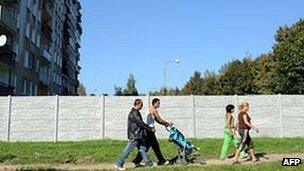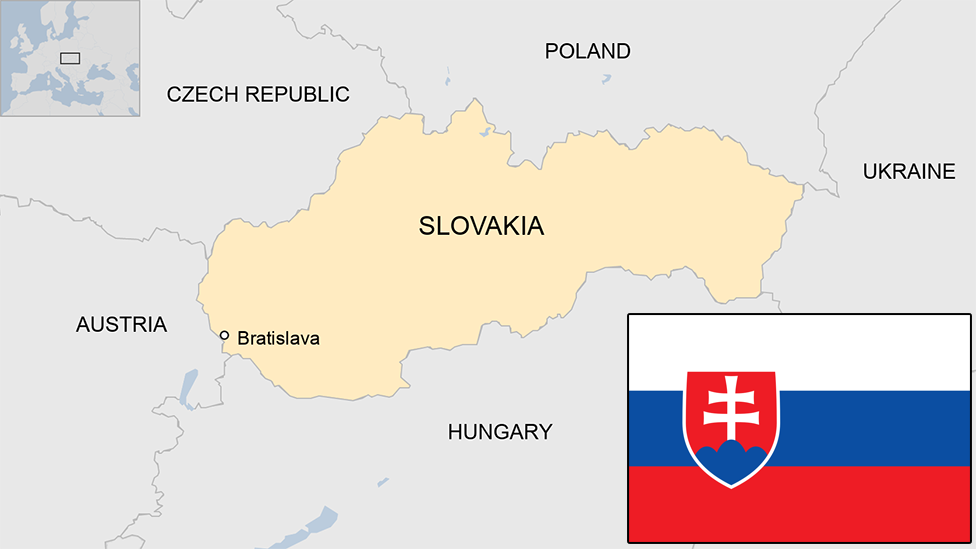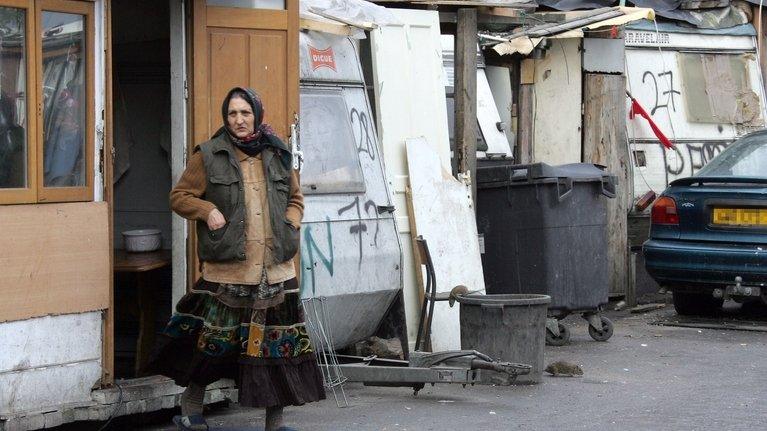Slovakia 'anti-Roma' wall in Kosice riles EU
- Published

Commissioner Vassiliou visited Kosice in January to launch cultural events
The authorities in the Slovak city of Kosice say they are taking legal action to remove a wall separating Roma (Gypsy) families from majority Slovaks.
The pledge came in a letter from Kosice mayor Richard Rasi to EU Commissioner for Culture Androulla Vassiliou. He called the wall illegal.
He was responding to a complaint from Ms Vassiliou,, external who said the wall violated the EU's stand against racism.
Walls blocking off Roma areas have raised tensions in Slovakia before.
Mr Rasi's letter , externalsaid the wall in Kosice-Zapad district had been put up this summer on the initiative of the district mayor, Rudolf Bauer, "illegally, without the necessary permits, and without informing the city of Kosice".
"Appropriate legal actions against the city part in question shall follow," he promised.

In 2010 Roma were walled off from majority Slovaks in the town of Michalovce
Ms Vassiliou had asked him "as a matter of urgency... to remedy this unfortunate situation".
'Capital of Culture'
Kosice, in the east, is Slovakia's second city, after the capital Bratislava. This year the EU gave Kosice the title "European Capital of Culture".
Pictures of the wall , externalappeared on the Slovak news website Sme.sk, showing that someone had painted the word "Prepacte" ("sorry") on it in big letters.
The CTK news agency reports that the Kosice wall is the eighth such project to arise in eastern Slovakia since 2009, and the fourteenth in Slovakia as a whole.
The 2011 census put the Roma population of Slovakia at about 106,000, out of a total population of 5.5 million. But the figure for Roma is disputed, with some estimates putting their numbers higher, at more than 5% of the total population.
Roma communities in Slovakia, the Czech Republic, Hungary and Serbia have long complained of discrimination. Many Roma live in desperate poverty and suffer higher rates of sickness and illiteracy than the national average.
- Published5 June 2024

- Published23 May 2012
